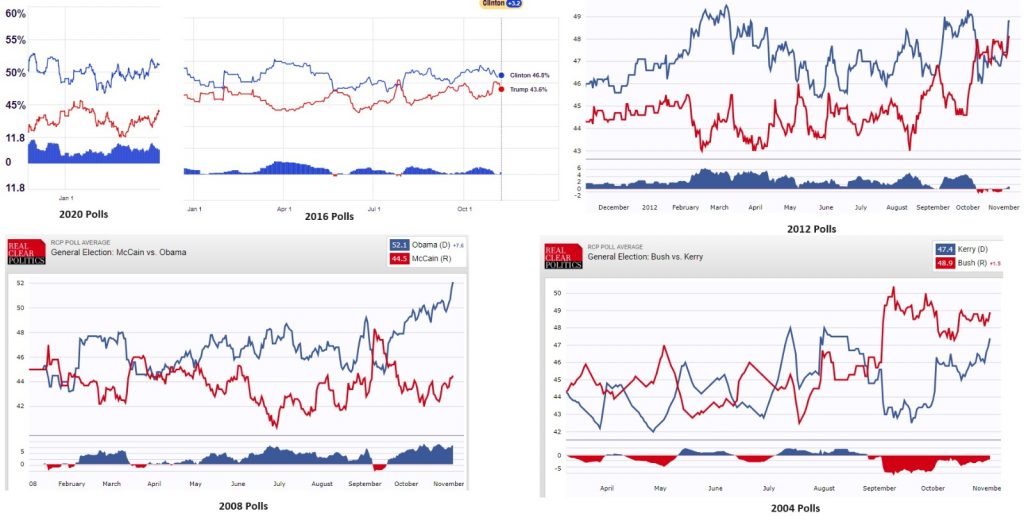A popular populist? Trump’s chances in the popular vote

American voters look highly likely to witness a rematch in November, for the first time in almost 70 years. But while the candidates may look familiar to last time, the polls look quite different. In fact, Donald Trump has the best polling for a Republican nominee at this stage for at least 20 years.
Over the last 20 years, and especially the last decade, the Republican Party has become a very successful minority party. Its big advantage in rural areas have given it a growing edge in the electoral college and moreso the Senate, which they have controlled for 6 of the past 10 years despite never having an aggregate lead in popular vote*. The party has likewise held the White House for 12 of the last 24 years despite only winning the popular vote once.
Despite this, the party has repeatedly doubled down on a base strategy of energising white conservative voters. It’s reached the point where some journalists have questioned if the party is even trying to win the popular vote any more.
But right now, that’s what Trump is on track to do.
Polls this early are not particularly predictive in the US. But there is no denying they look very different now to the last few cycles. Just look at the RealClearPolitics charts from each election year. Apologies in advance for the rather painful compilation, if you want to go to the source then click here for 2024, 2020, 2016, 2012, 2008, and 2004 numbers.

For the first time since George W. Bush’s game-changing convention bounce, the Republican candidate has a sustained polling advantage in an election year. Perhaps we shouldn’t be surprised, Joe Biden’s approval rating is that of a President heading to a clear defeat (and he hasn’t had a firm poll lead since January 2023). But can we trust the polls?
The strongest counter-argument to these polls is recent election results. Biden’s approval rating has been poor for most of his term, but it was poor in November 2022 when Democrats barely lost the House and actually gained a Senate seat – the best midterms for an incumbent party since those Bush enjoyed in 2002. Maybe, after a few polling errors underestimating the Republicans, things are now reversed. Or maybe Biden’s brand has detached from his party’s, who can still win even if he can’t.
Alternatively, perhaps Trump’s poll lead is a mirage created by him being out of the spotlight. Never publicity-shy, Trump nonetheless garners many fewer headlines out of office than in. It may be that as he again becomes more prominent in the minds, and daily lives, of voters they sour on him and support Biden for the same reasons they did in 2020. Or perhaps his legal troubles will hit his polling if he loses a trial before the election.
Ultimately we don’t know, but the betting markets are pretty confident. Not only are Democrats favourite to win the popular vote, they are quite heavily favoured. Punters have seemingly come to see Republican minority support as a law of nature, but I think that is a mistake. Biden is an unpopular incumbent in an era of unprecedented anti-politician sentiment. Defeat, in the popular vote as well as the electoral college, is very much an option.
The odds shouldn’t have strayed that far from evens, certainly not to upwards of 5/2 where they are now. You can even get 10/3 on the Republicans at SkyBet. I’m on (though not at those odds, owing to account restrictions). I’ve actually wagered quite heavily by my standards, since I suspect there will be a good trading opportunity closer to election day unless polls flip persistently.
*(This figure requires you to calculate the total votes from the last three sets of Senate elections, as it is elected in thirds. This prevents the skew of seats in each third from distorting the figures.)
Quincel
Pip Moss posts on Political Betting as Quincel. He has bets on the Republicans winning the 2024 popular vote at average odds of 11/4 You can follow him on Twitter at @PipsFunFacts or BlueSky at @Quincel.Bsky.Social